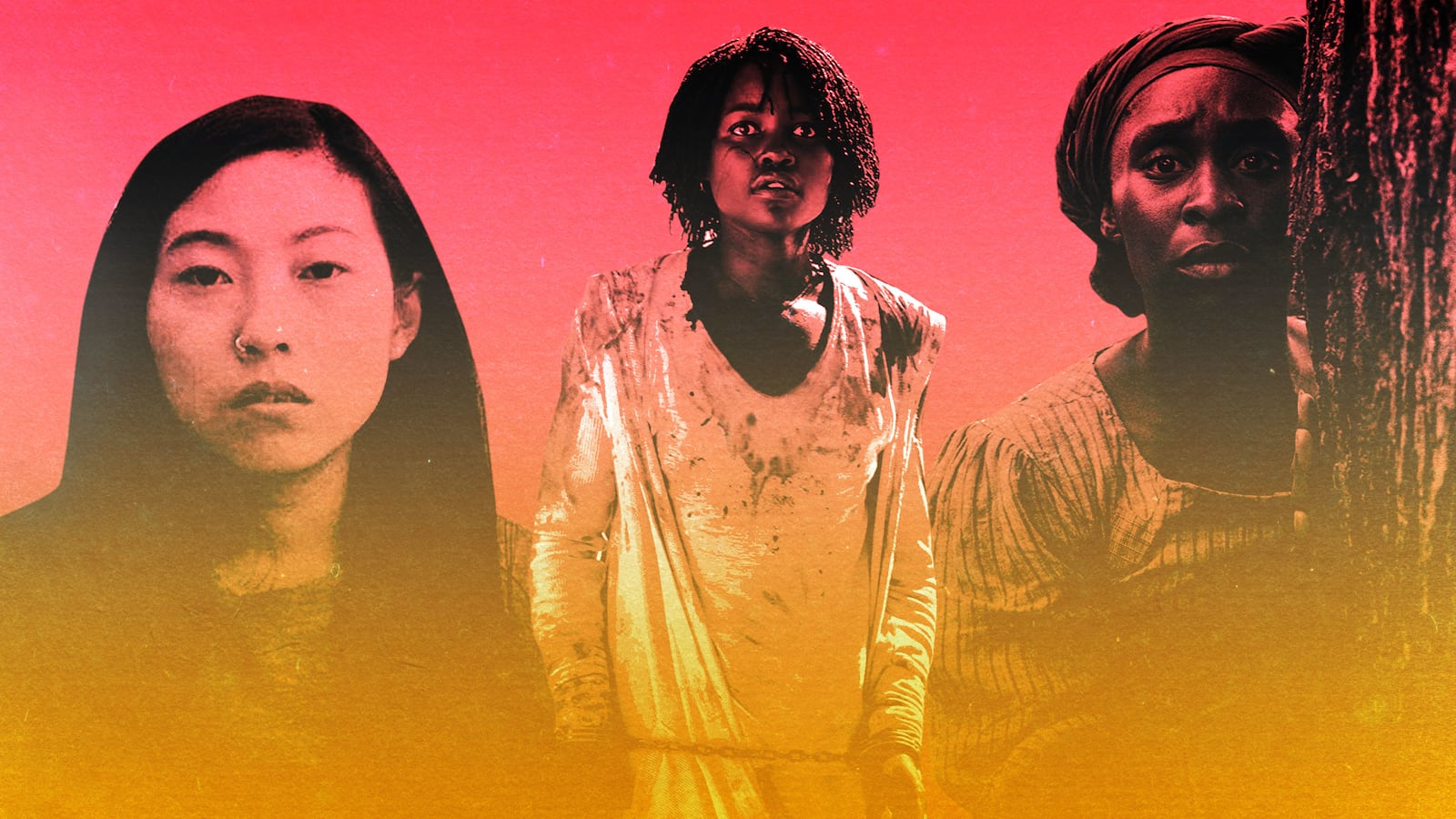Awards season is still not over, and in fact has barely begun. At this juncture, the question we must beg of our hallowed competitions is if in future seasons, the BAFTAs (the British equivalent of the Oscars), will get better or worse or randomly and arbitrarily both. It’s a mixed bag of answers depending on who you ask, but this is certain: the BAFTAs’ continued exclusion of black actors—whether British, American, or Lupita—from its major acting awards nominations as well as women from its directing category in a year that brought us Atlantics, Portrait of a Lady on Fire, The Farewell, and The Souvenir (directed by a British woman no less) is unsurprising for the film industry that feeds into it.
That is to say, the British film industry is one defined by racism, misogyny, classism, and selective xenophobia, and individual years and instances of seeming progress do not cancel out an overall history of exclusion and ignorance.
The BAFTAs are not where film-lovers, programmers, critics, or activists should look for recognition and justice. Not even Mike Leigh’s Peterloo, a film with an entirely white cast in period dress, was nominated—perhaps because it is about poor Brits from Northern England organizing for government representation against the Tories.
As many online have commented, it’s no wonder that given the British film industry’s limited perspectives, black British actors and film professionals have flocked to the U.S., where their prospects for dignified and interesting work are much brighter; the U.K., and Europe for that matter, are well behind the U.S. in terms of black and other POC representation, opportunities, and overall advocacy. In a stunning but ultimately unsurprising move, the BAFTAs have asked Cynthia Erivo, who starred in the U.S. film Harriet, to perform at the ceremony even though neither she, the film, nor its director Kasi Lemmons are nominated. Erivo’s team has declined.
Notably, when Get Out was released in 2017, African-American actor Samuel L. Jackson complained that black Briton Daniel Kaluuya was playing an African-American character, a culturally different experience that Jackson believed should’ve been portrayed by someone who has directly lived it. Similar comments have been made about Kaluuya since, when he again played an African-American facing the violence of American racism in this year’s Queen & Slim. In a brilliant and well-researched 2017 piece for Sight & Sound, the black British writer and current senior programmer of cinema at BAM, Ashley Clark, wrote about the marginalization of black British actors in British film, pointing out that in films like The Crying Game and For Queen and Country, African-American actors—Forrest Whitaker and Denzel Washington, respectively—were brought in over black Britons for box office reasons. While African-American actors and filmmakers have been unfairly snubbed from awards nominations in recent years, it is undeniable that their opportunities in the industry are comparatively much greater and their likelihood for recognition by awards in the U.S. much higher than their British counterparts’.
It’s worth disclosing that I’m black and both a U.S. and U.K. citizen. I cannot fairly be called African-American nor black Briton—I have ancestors who were enslaved, but in Brazil, not the U.S.; I was born in Wales and have a lot of family who are black Britons, but left the country when I was very young. I suppose I can be called black British-American, or African-British-American, since my mother immigrated to the U.K. from Zambia in her early twenties. This in-between-ness does give me some measure of perspective on the issue, though: I have personal knowledge of how comparatively welcoming the U.S. is for black people from the U.K., as well as how in the U.S., at a certain class level, African-Americans will face more discrimination from white people than black Britons (or black people like me, whose “backgrounds” cannot be ascertained through their accents). My father gambled the future of his family on these messy ideas, many of which he didn’t yet understand at the time of our immigration, and my resulting privilege is a large part of why I have a stable career in writing at all. Black British actors, who are well within their rights to make the same choice my dad did, understand the potential returns; African-American actors, who were once seen as the favorable choice in the U.K. and now must compete with Brits domestically, would not be wrong to feel suspicious of the whole affair, for which not only the American film industry, but the British one, too, is responsible.
So where does that leave the flagrantly exclusionary BAFTAs? Well, in the trash, one would hope. In reality, there are many actors and filmmakers still dependent on awards for the kind of validation that could make their careers by (hopefully) conferring more and better opportunities upon them. The president of the African-American Film Critics Association, Gil Robertson, told me that while he thinks, on the whole, things are getting better (he singled out Parasite as an example of audiences and awards voters embracing a non-white film), “[e]veryone’s not going to be happy with everything. If you’re going to spend your time really worrying about that, you’re going to drive yourself crazy.”
He’s right. As I’ve said from the start of awards season, and won’t stop saying, we’d do well to relinquish ourselves from the awards frenzy and give more of our attention to the movies and performances in need of our advocacy.


